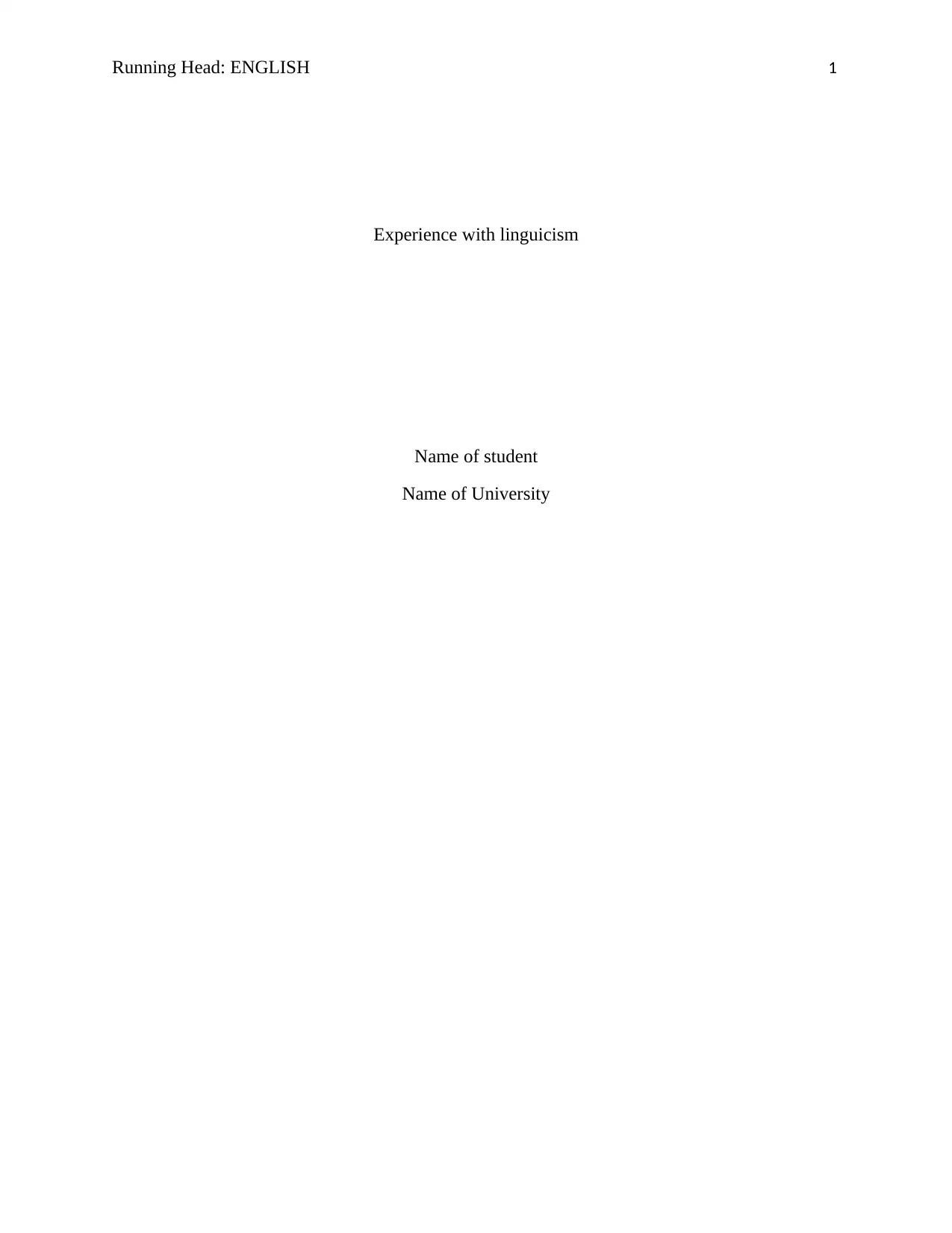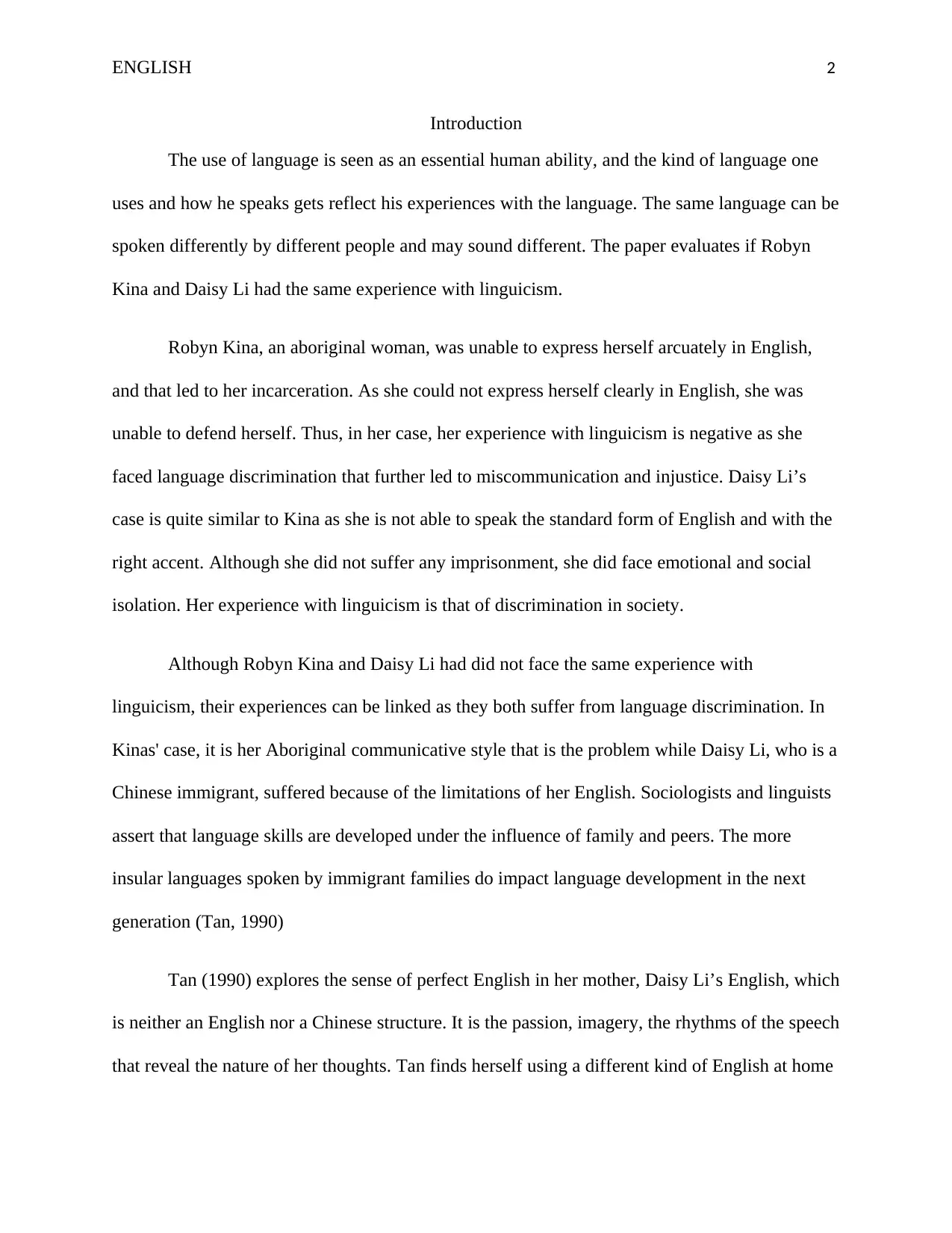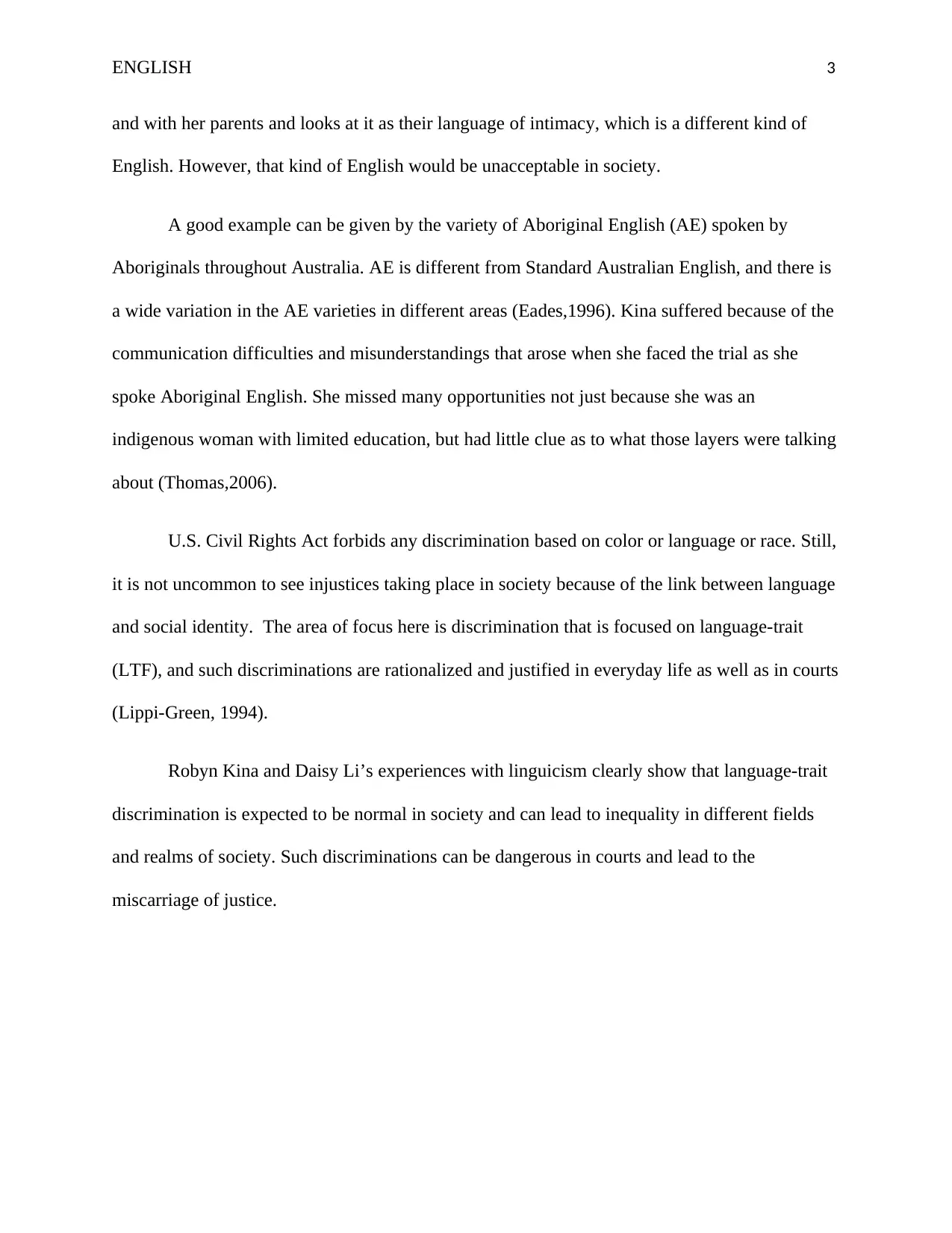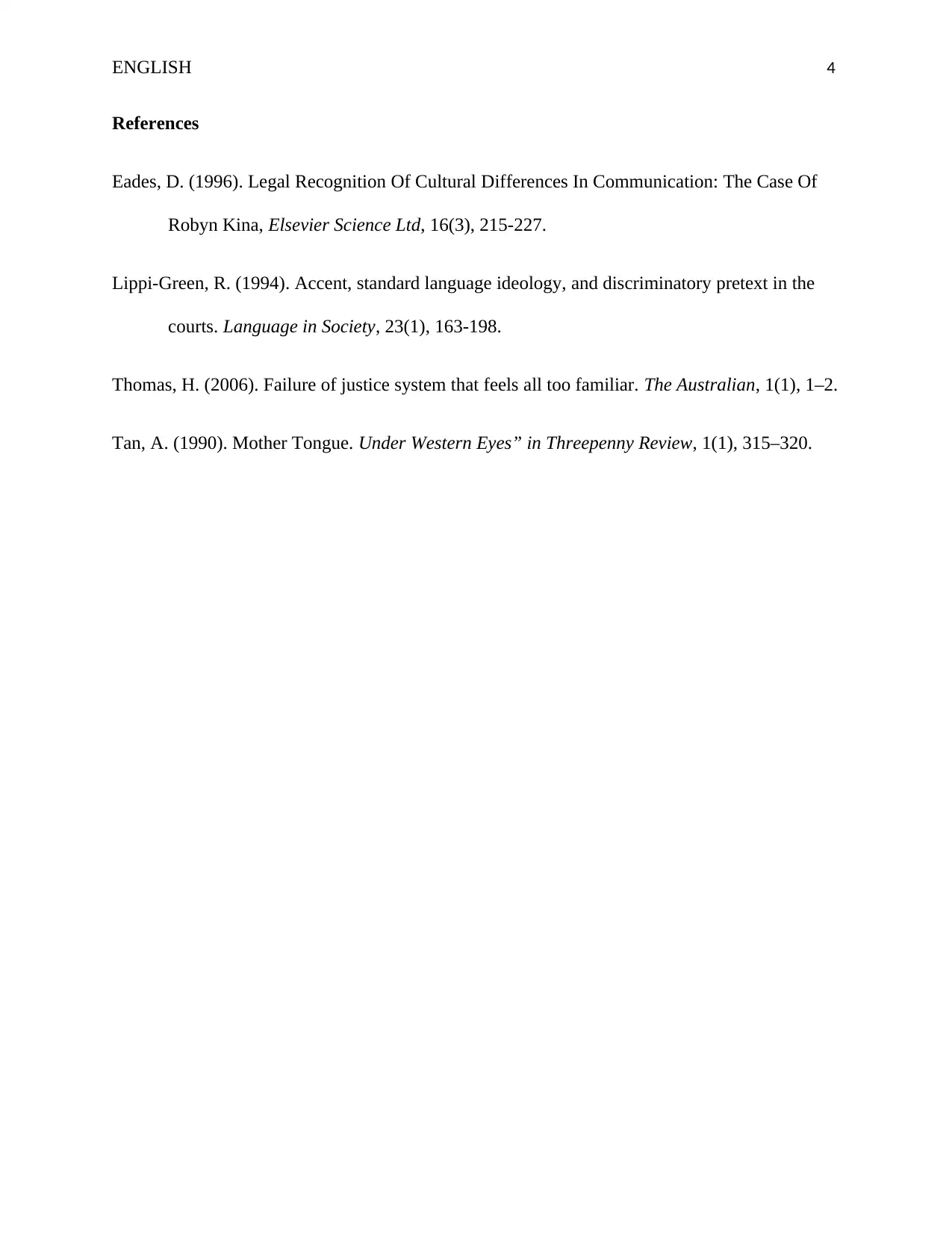Linguicism Experiences: Examining Language Discrimination in Society
VerifiedAdded on 2023/01/17
|4
|728
|36
Essay
AI Summary
This essay examines the concept of linguicism and its impact on individuals, focusing on the experiences of Robyn Kina and Daisy Li. The introduction establishes language as a fundamental human ability and explores how language use reflects personal experiences. The paper compares the cases of Kina, an Aboriginal woman, and Li, a Chinese immigrant, both of whom faced language discrimination. Kina's inability to express herself clearly in English led to legal issues, while Li experienced social and emotional isolation due to her accent. The essay highlights how language skills develop under family and peer influence, influencing language development. It references the works of sociologists and linguists to support the argument that language-trait discrimination is a societal issue that can lead to inequality, especially in legal settings. The essay concludes by emphasizing the significance of understanding and addressing linguicism to prevent injustice and promote equality.
1 out of 4







![[object Object]](/_next/static/media/star-bottom.7253800d.svg)